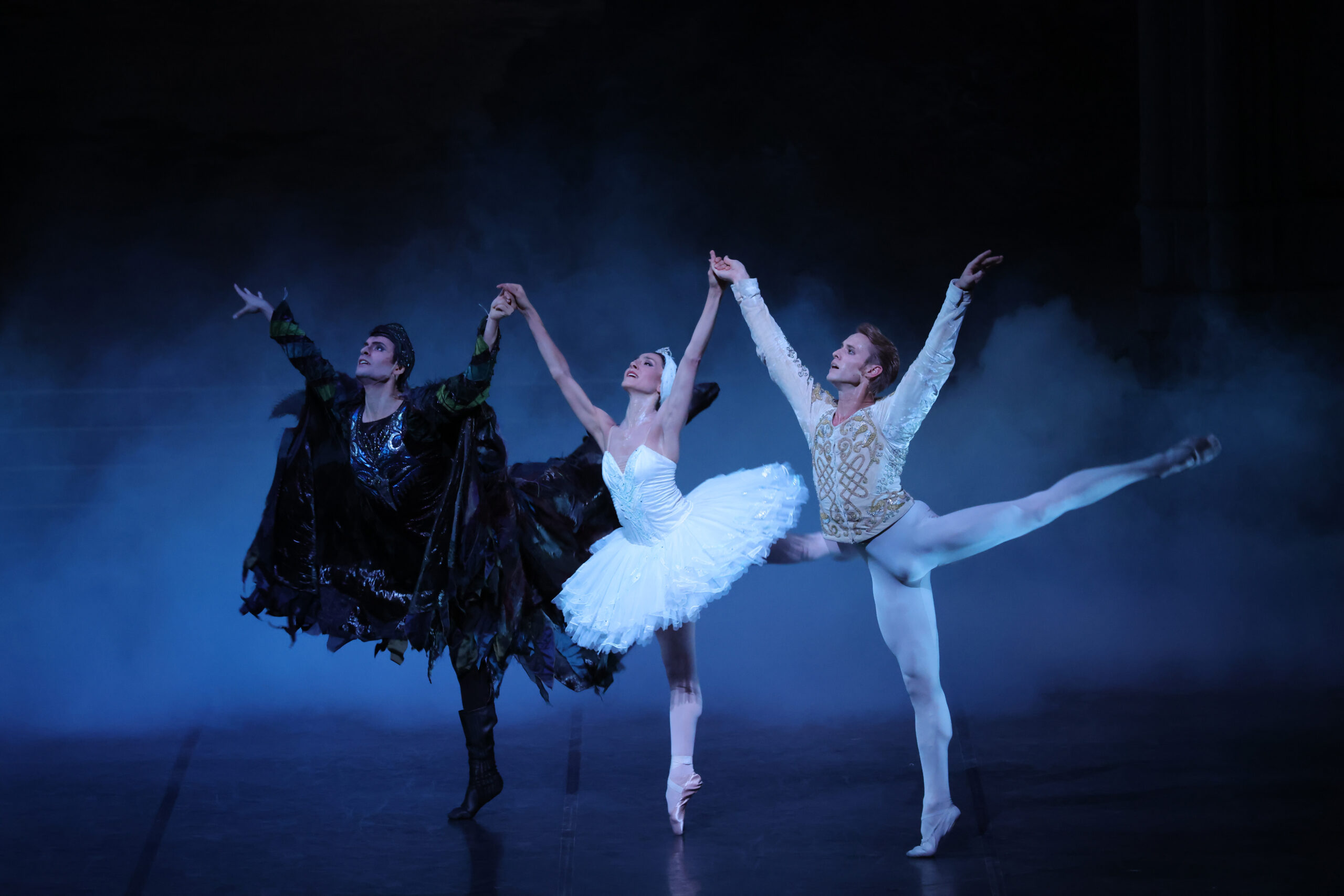(🇬🇧)
La Scala’s revival explores brooding psychological terrain and themes of repression and unspoken desire, testing dancers and audience alike, while it struggles to fully convey emotional nuance, leaving the finale strikingly unresolved
by Alessandro Bizzotto
Nureyev’s Swan Lake, revived now at La Scala and running until July 18, refuses to be merely a fairytale of doomed romance. Instead, it probes darker terrain: a forensic exploration of repression and sublimated longing. In this vision, Siegfried is no passive victim of fate, but a young man paralysed by unspoken desires. The lake itself is less an enchanted refuge than a mirror reflecting his fractured psyche.
From the prologue onward, the production insists that we are trapped in his mind. He dozes on a grand but sterile throne while his subconscious unfurls in spectral tableaux. The giant upstage frame doesn’t just set the scene: it becomes a metaphor for a life defined by boundaries without substance. Here, Odette becomes the impossible ideal – part lunar, feminine mystery, part solar, masculine striving – offering purity he both craves and cannot possess. His attraction to her is as much about what he must deny in himself as about any redemptive bond.
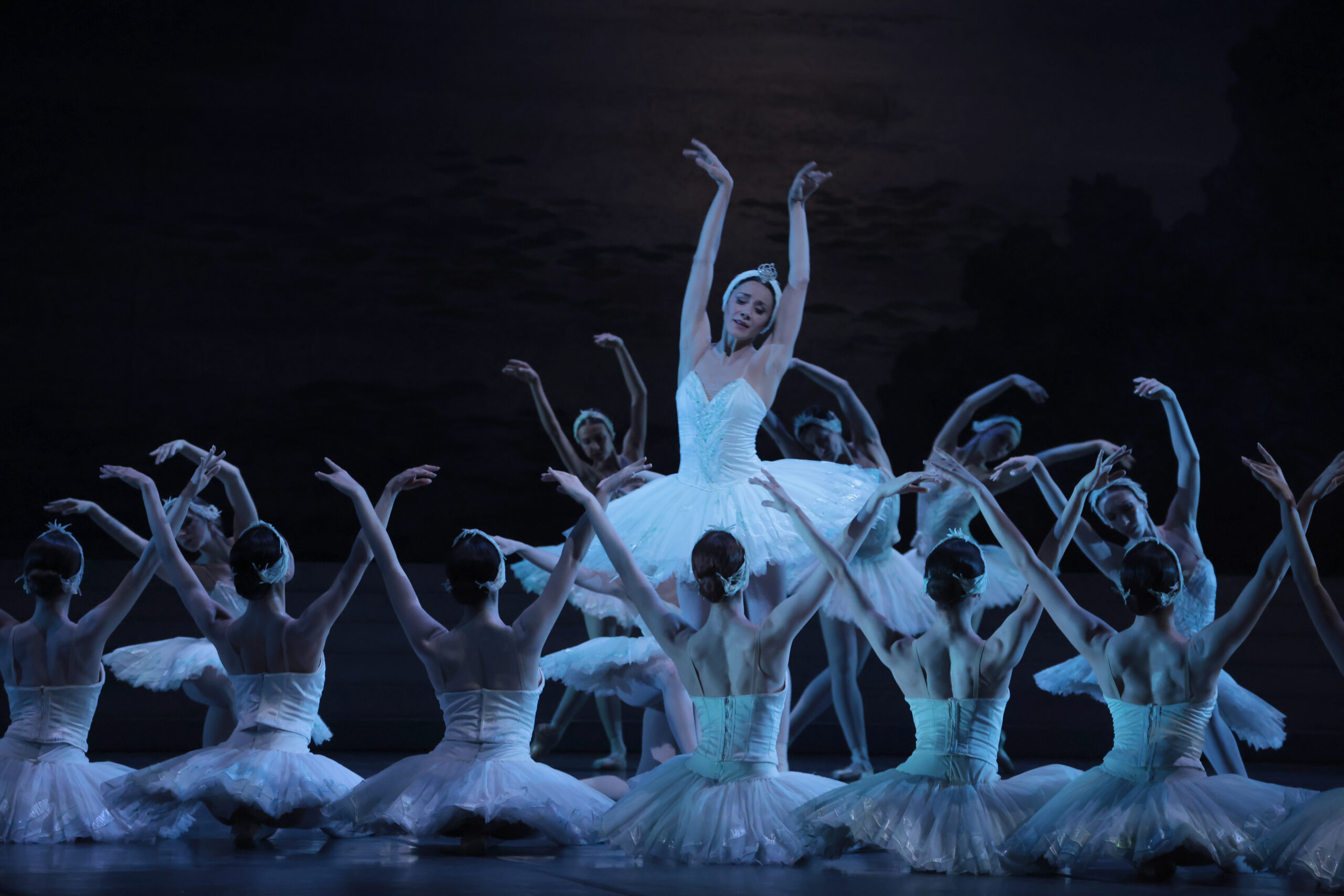
It’s Act III’s ball that makes this rupture painfully clear. When Odile arrives, Siegfried lunges at her with desperate certainty, convinced he sees the same promise. But Odile is the dream curdled: seductive, mocking, unattainable. The betrayal isn’t just Rothbart’s ruse but Siegfried’s own collapse, mirroring that all-too-human poison when someone who once seemed welcoming now appears cold, out of reach, and our desire grows more fevered for being thwarted.
Nureyev’s reading takes this further, suggesting Siegfried’s entire romantic quest is a strategy of sublimation. Surrounded by the regimented male society of the court, here rendered in deliberately pallid, near-monastic colours, he recoils from adult expectations: marriage, power, heterosexual duty. Instead, he projects his yearning onto a swan-woman he can never have, transforming his forbidden impulses into aestheticised devotion. It is not simply an adolescent refusal to grow up, but a portrait of someone who cannot admit, even to himself, what he truly wants.
Rothbart, in this schema, is no mere villain but the externalisation of the prince’s own repressive conscience; the brutal tutor turned inner censor, ensuring any genuine desire is twisted or punished. Even the set collaborates in this reading: a chill neo-Gothic prison whose lofty, empty spaces evoke not grandeur but claustrophobia, while its framed portals remind us that we are watching a dream, or a confession. Franca Squarciapino’s costuming, all tarnished silks and faded hues, makes the world feel seen through a filter of memory and shame.
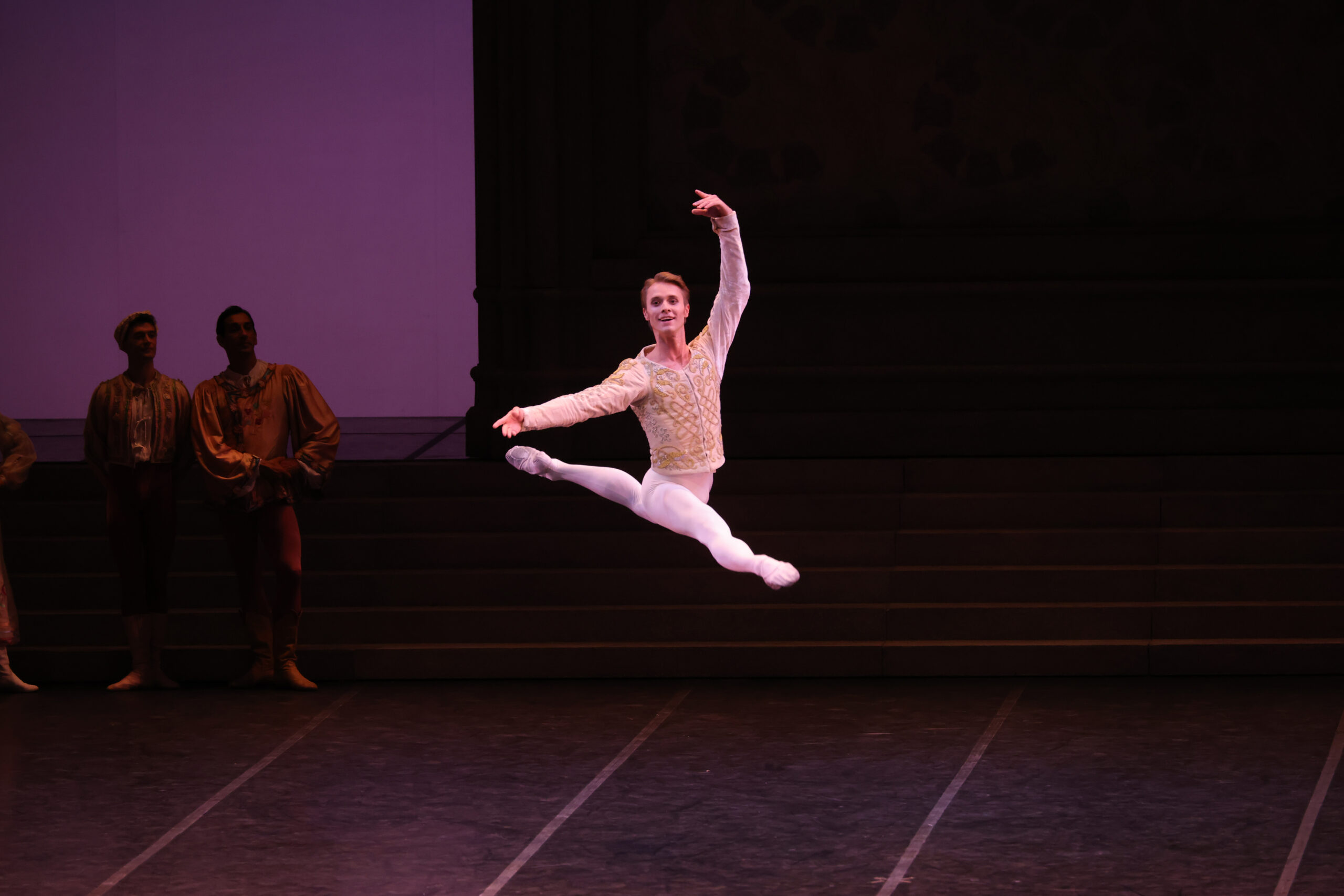
On the opening night, first soloist Timofej Andrijashenko proves well-cast in this vision. He carries the aura of a danseur noble without resorting to cheap glamour or grandstanding, projecting instead a quiet fragility that suits Nureyev’s damaged prince. There’s a genuine reticence in his presence. Even in Act I’s introspective solos, Andrijashenko offers not fiery passion but an unsettling, subdued tension – the emotional life of someone who knows precisely what he cannot show.
Technically, there’s room for refinement, especially in the shaping of the upper body. Yet in this psychological framework, such imperfections turn almost perversely appropriate. His slight rawness becomes a narrative tool: the vulnerability of a man resisting the role he’s meant to play. Andrijashenko’s adagio work has an understated tenderness, revealing a partner who supports rather than dominates, hinting at a wounded innocence that makes Siegfried both sympathetic and deeply troubling.
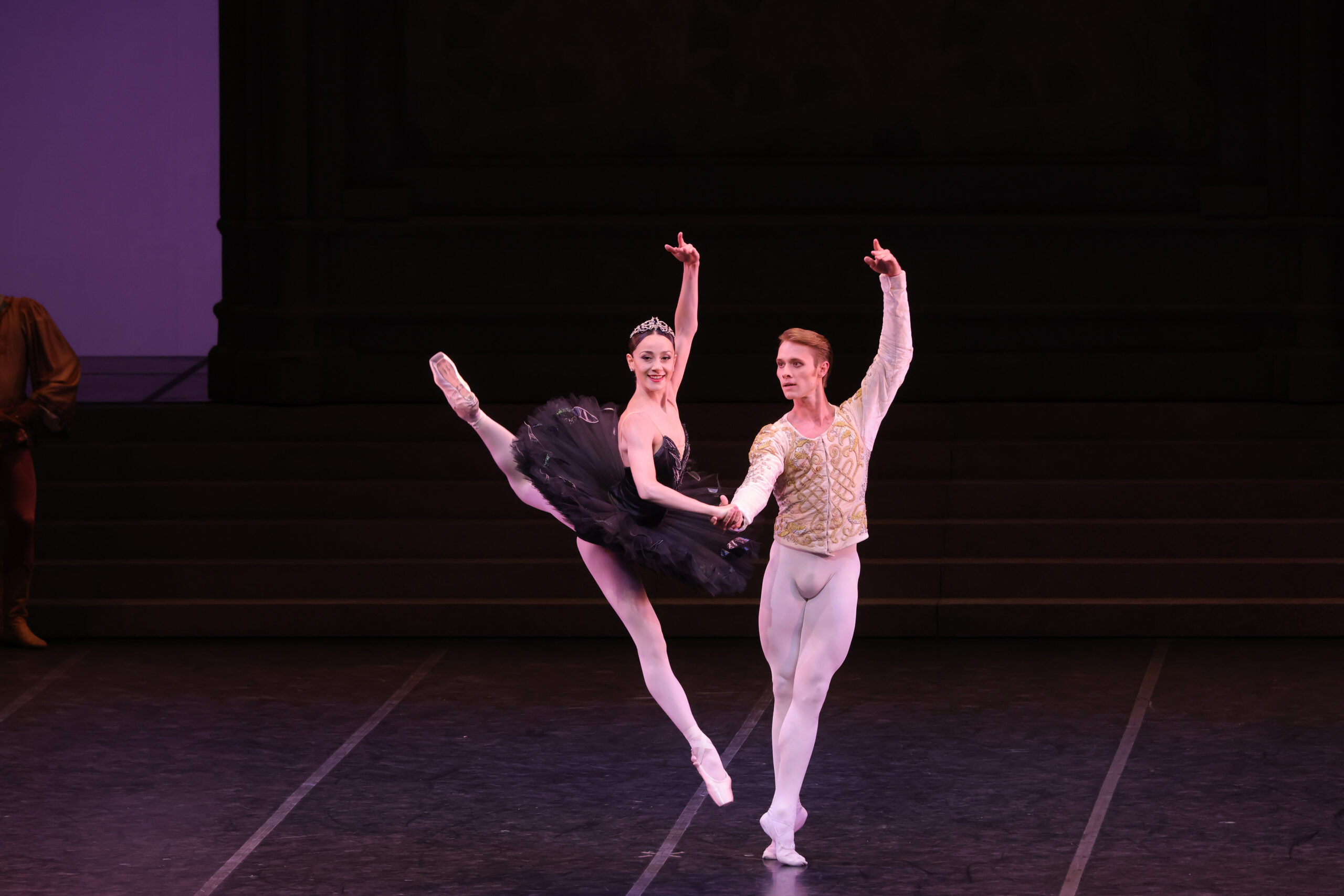
It seems to match Nureyev’s intentions, as this Swan Lake becomes a kind of case study: a man unable to claim love in the world of day, who flees to dreams only to see them collapse into nightmare. But whether one finds in that clarity a kind of truth, or merely an intellectual exercise that drains the old legend of its strange poetry, remains the unavoidable question hanging in the shadows.
Principal Nicoletta Manni, meanwhile, offers an Odette of statuesque poise and unfailing control. There’s a sculptural precision to her line that at times feels more frozen than fluid – where the phrasing should breathe or ache, it can seem locked in immaculate form. Her first encounter with Siegfried on the lakeshore has too much composure, too little fear, missing that essential tremor of a creature torn between worlds. Even her arms, beautifully placed but often firm rather than yielding, show an occasional break at the wrist reminiscent of more mannered traditions. The focus on flawless polish over vulnerability lends Odette an aloof, almost opaque quality, less a wounded soul than a pristine emblem.
Manni seems more at home as Odile in Act III, where her technique acquires a harder brilliance. Yet even here, the virtuosity risks being self-referential: the single attempted triple fouetté in the coda, neither perfectly secure nor especially integrated, feels like an isolated flourish, a bid for impact not fully embedded in the drama. In the Black Swan pas de deux, she needs to project that toxic allure of the familiar turned unfamiliar: the disorienting magnetism of someone glimpsed for the second time and suddenly out of reach, no longer quite what memory promised. Her gaze should alternate between sly invitation and sudden flashes of something feral, demonic, only to soften into deceptive sweetness the instant Siegfried looks her way. Instead, there’s a certain knowing coquetry that feels more decorative than dangerous, leaving Manni’s Odile polished but oddly unthreatening. It’s a performance of commanding clarity that somehow keeps its secrets, offering brilliance without quite surrendering its darker truths.
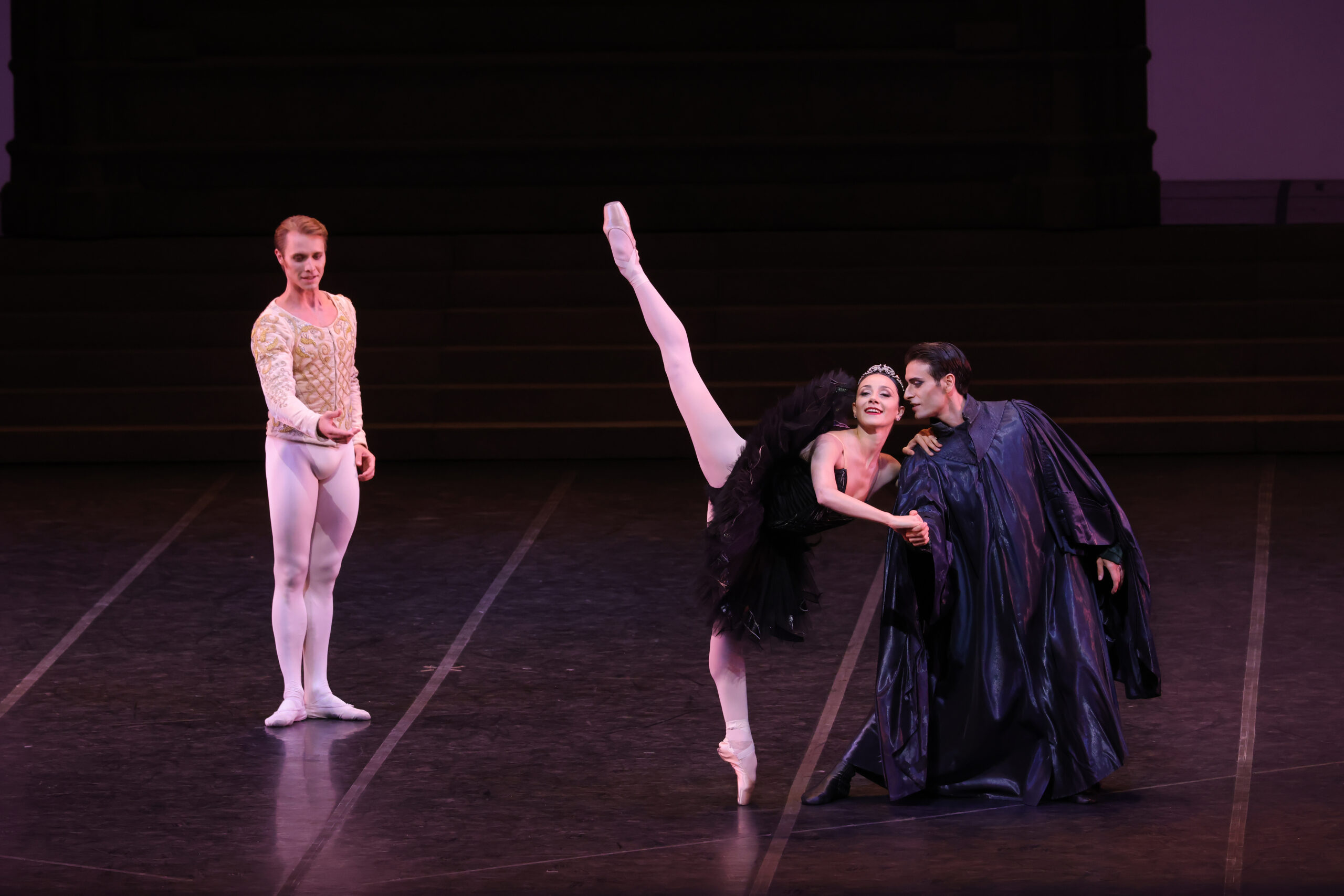
First soloist Marco Agostino, for his part, may not boast the most dazzling pyrotechnics in Rothbart’s Act III variation, though his final manège is crisply delivered. Yet he compensates with an imposing, quietly menacing authority in the double role of the tutor and sorcerer. His physical carriage – sly, watchful, and faintly predatory – suggests someone who delights in pulling others’ strings.
There’s a kind of sinister promise in the way Agostino paces the stage, an enjoyment of power that turns Rothbart from villain into the embodiment of the prince’s most repressive instincts.
The final act remains the weak link in Nureyev’s production, shorter yet lacking emotional impact. The corps de ballet falters in delivering the precise unity demanded by the new swan dance, and the brevity paradoxically stretches the narrative thin. The closing tableau, with Rothbart rising skywards as a predatory bird clutching Odette, while Siegfried gazes on with wild eyes, carries immense dramatic potential. Yet it lands with a chilly, overly theatrical detachment. The question lingers: does Siegfried awaken from his dream, or is he doomed to be crushed by the brutal reality awaiting him? The ambiguity here feels less like a profound statement and more an unresolved puzzle, leaving the finale strangely underwhelming.
Within Nureyev’s staging, Timofej Andrijashenko’s Siegfried subtly embodies this final ambiguity. His restrained fragility and inward torment mirror a prince caught between dream and reality, lending the finale a quietly compelling tension amid its theatrical shortcomings.
Yet despite his presence, Nureyev’s production as a whole struggles to find a truly convincing conclusion, leaving the audience with more questions than answers as the curtain falls.

